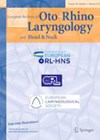You searched for "ChatGPT"
ChatGPT Quiz skills need refinement!
4 September 2023
| Gauri Mankekar
|
ENTA - Head & Neck, Neurotology, ENTA - Rhinology / Sinus
|
AI, Artificial intelligence, ChatGPT, Multiple-choice, Otolaryngology quiz, Single-choice
On 30 November 2022, ChatGPT was launched, free for all to use online. For those who are not aware, ChatGPT (Chat Generative Pre-trained Transformer) is an artificial intelligence (AI) chatbot which utilises the web to create detailed and natural human-like...
ChatGPT to select patients for biologic therapies in CRSwNP?
3 May 2024
| Gauri Mankekar
|
ENTA - Rhinology / Sinus
This short communication describes programming the artificial intelligence (AI) algorithm for systematic review of current literature about guidelines on the clinical efficacy and safety of biologics in the treatment of chronic rhinosinusitis with nasal polyps (CRSwNP). The authors first performed...
Current AI audiology knowledge
4 March 2025
| Aaron SJ Ferguson
|
ENTA - Audiology - Adult, ENTA - Audiology - Diagnostic, ENTA - Audiology - Paediatric, ENTA - Neurotology, ENTA - Otology, ENTA - Vestibular Disorders
Artificial intelligence (AI) tools are becoming increasingly popular and can be utilised by patients, healthcare professionals and students. The performance of chatbots can be variable between different AIs and, indeed, different topics. There is no current consensus for the best...
Revolutionising medical writing: the power of language models in the clinic
4 May 2023
| Tiffany Munroe‑Gray
|
ENTA - ENT
Artificial Intelligence (AI) is taking the world by storm at the moment. We hear how AI might influence the letters we write in clinic. As a clinician, the process of writing a clinical letter can be time-consuming and challenging. It...
AI in ENT practice
Artificial intelligence (AI) technologies are becoming increasingly prevalent in our lives and there has been both enthusiasm and caution for using AI in healthcare. A recent article in the Journal of the American Medical Association reported on a trial examining...The role of artificial intelligence and applications in ENT surgery
AI is progressing apace. If you’re wondering how it might affect our working lives in ENT, read on for insights and a pilot study that show us what may be possible. The recent launch of ChatGPT, an open access artificial...From the editor May/June 2023
4 May 2023
Declan Costello, MA, MBBS, FRCS(ORL-HNS),Consultant Ear, Nose and Throat Surgeon, Wexham Park Hospital, Slough, Berkshire, UK. E: d.costello@nhs.netTw: @Voicedoctor_uk The management of swallowing disorders is often seen as a ‘Cinderella’ field, so it is a real pleasure to be able...
Risk factors for pharyngocutaneous fistula after laryngectomy
1 January 2016
| Jonathan Hughes
|
carcinoma, cutaneous fistula, laryngeal neoplasms, laryngectomy, meta-analysis, postoperative complications, squamous cell carcinoma
Pharyngocutaneous or salivary fistula is a feared complication following laryngectomy, causing significant morbidity, prolonged hospital inpatient stay / cost and mortality. Previous radiotherapy / chemoradiotherapy is a well recognised risk factor and leads many surgeons to recommend onlay pectoralis major...
Diagnosis, wearables and remote monitoring in 15 and 50 years
1 March 2019
| Ajith Paulose George
|
ENTA - ENT
In 2069 will we look forward to being enslaved by robots, becoming zombies or having our health (and ill health) diagnosed by nanotech? Ajith George muses over what the future holds for us all. The future of healthcare, not just...
App-solute relief: tackling tinnitus with your smartphone
4 July 2024
| Nyla Razaq
|
ENTA - Tinnitus
The sound experienced by individuals with tinnitus can vary to a huge extent. It can range from a mild occasional ringing to a constant, loud noise causing disruption to daily life and sleep. Reassuringly, tinnitus is rarely a sign of...
What you need to know about recent advances in genetics of hearing loss in the newborn
6 January 2023
| Lara Kamal, Karen B Avraham (Prof)
|
ENTA - Audiology - Paediatric
Identifying the underlying genetic cause of hearing loss in newborns can improve dramatically the early diagnosis and appropriate intervention. Hearing loss is the most common sensory disorder at birth, affecting approximately two out of 1000 newborns [1]. Congenital impaired hearing...











